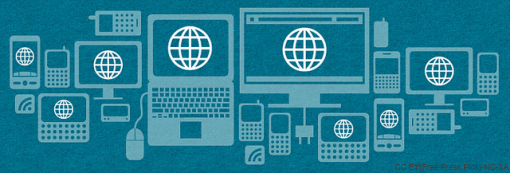An evaluation of the net neutrality law in Chile
by Digital Rights LAC on July 17, 2013
Chile was the first country in the world in adopting a law on net neutrality. Three years later, numbers on the telecommunications market suggests its positive effects, but it does not appear to be completely effective for consumers.
By Alberto Cerda, NGO Derechos Digitales.
Nearly after three years from adopting a law on net neutrality, it is possible to see some effects of the regulation in Chile. The law has helped to reduce connection costs, to increase the number of users, and to introduce greater competiveness in the telecommunications market. However, these benefits are overshadowed by allegations of negligent supervision of the law by public authority.
In 2010, after three years of parliamentary debate, Chile became the first country in the world to adopt a law on net neutrality. In short, the regulation imposes two key obligations on public telecommunications service concessionaires serving Internet service providers, and the latter: first, to provide information to users and, second, to refrain from interfering in communications thereof.
Some alarmist voices suggested then, as is now done elsewhere, that the implementation of the law would lead to disastrous results for the local telecommunications market. However, the statistics belie such restlessness. Today, Chile has more connections at a lower cost to users.
The numbers are in sight. According to official numbers from the local telecommunication authority, SUBTEL, between 2009 and 2012, the number of mobile connections increased from 600,000 to nearly 5 million, while fixed connections increased from 1.7 to 2.2 millions. The costs to users have also decreased, according to SUBTEL, 2012 reported decreases of up to 50% in the price of services.
The opening of the networks that guarantee net neutrality has also allowed the entry of new operators into the market. Until 2009, Chile had only four mobile phone companies, this number reaches nine today. Three of the latter are mobile virtual network operators, whose services were hampered by major operators, until the Supreme Court forced these to offer facilities and resale of plans on the basis of general, standardized, objective, and non-discriminatory criteria. The new operators still represent less than 2% of mobile market. The same happens with mobile Internet access, which since 2012 has five new operators, with around 4.3% of total subscribers.
The local market for telecommunications services is still highly concentrated. By December 2012, according to official data, 75% of fixed telephone lines were provided by two operators, Telefonica and VTR, which concentrated 80% of fixed Internet access. While over 98% of mobile phone subscribers were in hands of three operators: Movistar (Telefonica), Entel, and Claro, which also concentrate more than 95% of mobile Internet subscribers. Although there are nominally other operators, these are often limited to certain regions of the country, niche markets, or they enter into the market just recently.
Contradicting baleful predictions, the telecommunications market is one of the most dynamic sectors of the Chilean economy. The growth rates in this sector exceed the other productive sectors since 2007. In 2011, for example, there was a record on investments in the sector, with an increase of over 25%. In fact, the recent global economic crisis seems to have not touched the telecommunications sector in Chile.
It is difficult to establish a direct correlation between the increased number of operators and connections, and the prices of services, to a particular cause. Simultaneously with the net neutrality law, Chile adopted a number portability law, a measure that has been implemented gradually for fixed lines since late 2011, and immediately to cell phone since 2012. Number portability has had to contribute to some of these achievements, especially during the last year. However, these achievements were evident already even before implementation of number portability, and some are mostly attributable to the openness of the market by net neutrality regulation.
But not all is positive. While the net neutrality law opens opportunities for new telecom service operators to enter into the market, providing more and better services to the users, the law seems not to be quite effective for users themselves.
Recently, ONG Civico, a nonprofit organization that advocates for consumer protection in the telecommunications sector, accused SUBTEL of failing to supervise the effective implementation of the law. ONG Civico complained that the authority has been negligent in supervising VTR –a recalcitrant operator that controls about 38% of the fixed access services to the Internet and 44% of pay TV services- company that violates the law by arbitrarily degrading the connection quality of certain services.
SUBTEL has rejected the accusations, highlighting the many user complaints that have been resolved by the authority, although all of them would refer only to the obligation to inform users, but none has meant the sanction for arbitrary interference in services, which is the actual irregularity attributed to VTR. In response, the House of Representatives summoned telecommunications and consumer protection authorities to a special session to discuss the allegations.
In brief, even if the net neutrality law has already produced positive effects on the local telecommunications market, a cloak of doubt hangs over the supervision that the public authority does and, consequently, to what extent the law is effectively protecting consumers.
Alberto Cerda Silva is international affairs director at NGO Derechos Digitales
E-mail: alberto (at) derechosdigitales.org






